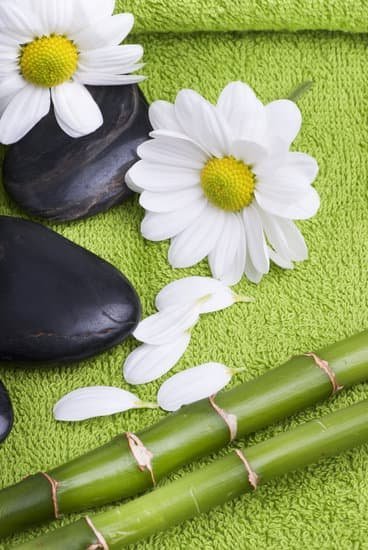Aromatherapy has gained immense popularity for its therapeutic benefits in creating a relaxing environment for humans. However, pet owners often wonder, “is aromatherapy diffuser safe for cats?” Understanding the impact of essential oils on our feline friends is essential to ensure their well-being.
Essential oils are the foundation of aromatherapy, harnessing the power of plant extracts to induce relaxation and stress relief. While humans can benefit from these oils, their effects on pets, especially cats, can vary significantly. The volatile nature of essential oils raises concerns about potential risks for our furry companions, making it crucial for pet owners to be cautious when using aromatherapy diffusers around them.
As we delve deeper into the science behind aromatherapy and its effects on cats, it becomes evident that certain essential oils pose significant dangers to our feline friends. It is imperative for cat owners to educate themselves about the potential risks associated with aromatherapy diffusers and take necessary precautions to ensure a safe environment for their beloved pets.
The Science Behind Aromatherapy
Aromatherapy has gained significant popularity in recent years for its potential therapeutic benefits, both for humans and pets. The practice involves using essential oils extracted from plants to promote physical and psychological well-being. Essential oils are highly concentrated substances that contain the volatile compounds responsible for the characteristic aroma of the plant they are derived from. When these oils are inhaled or absorbed through the skin, they can interact with the body in various ways.
The key mechanism behind aromatherapy is the olfactory system, which is responsible for our sense of smell. When essential oils are inhaled, they stimulate the olfactory nerve receptors in the nose, sending signals to the brain’s limbic system. This part of the brain is involved in regulating emotions, behavior, and memory.
As a result, certain scents can have a direct impact on our mood and overall sense of well-being. This is why many people use aromatherapy to reduce stress, anxiety, and improve relaxation.
While aromatherapy can be beneficial for humans, it is essential to consider its effects on pets, especially cats. Cats have a unique physiology that makes them more sensitive to certain substances than other animals. Some essential oils can be toxic to cats if ingested or absorbed through their skin.
Therefore, pet owners need to exercise caution when using aromatherapy diffusers around their feline friends. It is crucial to know which essential oils are safe for cats and how to use them properly to ensure their well-being.
- Lavender
- Chamomile
- Rose
- Sandalwood
When considering using an aromatherapy diffuser around cats, it is crucial to take into account their sensitivity to certain essential oils. While some oils are safe for feline friends and may even offer benefits such as relaxation and stress relief, others can pose serious risks if not used correctly. By understanding the science behind aromatherapy and being aware of potential dangers, pet owners can create a safe environment for their beloved cats while enjoying the benefits of aromatic diffusion.
Potential Risks of Aromatherapy for Cats
Aromatherapy has gained popularity for its potential benefits in promoting relaxation, easing stress, and enhancing overall well-being. However, when it comes to our feline friends, there are certain risks and concerns associated with using aromatherapy diffusers around cats. It is essential for cat owners to be aware of these potential dangers to ensure the safety and health of their beloved pets.
Essential Oils Toxicity
One of the primary concerns with using aromatherapy diffusers around cats is the toxicity of certain essential oils to felines. Cats lack a crucial liver enzyme called glucuronyl transferase, responsible for metabolizing toxins in essential oils. As a result, some essential oils, such as tea tree oil, citrus oils (lemon, lime, orange), peppermint oil, and pine oil can be harmful or even toxic to cats when inhaled or ingested.
Respiratory Issues
Another risk associated with aromatherapy diffusers is the potential for respiratory issues in cats. Cats have highly sensitive respiratory systems, and inhaling strong scents or volatile compounds from essential oils can irritate their nasal passages and lungs. This can lead to symptoms like coughing, wheezing, difficulty breathing, and even more severe respiratory problems.
Skin Sensitivity
In addition to inhalation risks, some cats may also experience skin sensitivity or allergic reactions when exposed to certain essential oils topically or through diffusion. Direct contact with concentrated essential oils can cause skin irritation, redness, itching, or dermatitis in sensitive felines. It is crucial for cat owners to monitor their pets closely when using aromatherapy diffusers and seek immediate veterinary care if any adverse reactions occur.
While aromatherapy diffusers can offer benefits for humans, it is important to consider the potential risks they pose to our feline companions. Understanding these dangers and taking precautions can help create a safe environment for cats while still enjoying the benefits of aromatherapy in a pet-friendly manner.
Essential Oils Safe for Cats
Overview of Safe Essential Oils for Cats
When it comes to using aromatherapy diffusers around cats, it is essential to be cautious and mindful of the oils being diffused. While some essential oils can be harmful or toxic to feline friends, there are a few that are generally considered safe for cats. These safe essential oils can be used in moderation and with proper dilution to create a calming atmosphere for your pets without posing any health risks.
Lavender
Lavender is known for its soothing and relaxing properties, making it a popular choice for aromatherapy. When used in moderation, lavender essential oil can help reduce stress and anxiety in cats. It is important to ensure that the oil is diluted properly before being diffused to avoid any adverse effects.
Chamomile
Chamomile essential oil is another safe option for cats when used appropriately. This gentle oil has calming properties that can help alleviate anxiety and promote relaxation in feline companions. Diluting chamomile oil before diffusing it will ensure that your cat can enjoy its benefits without any negative consequences.
Frankincense
Frankincense essential oil is often used in aromatherapy for its grounding and centering effects. This oil is considered safe for cats when diluted correctly, and it can help create a serene environment that promotes overall well-being. As with any essential oil, ensuring proper dilution and monitoring your cat’s response to the scent is crucial when using frankincense in an aromatherapy diffuser.
Factors to Consider
Aromatherapy has gained popularity for its various benefits, including relaxation, stress relief, and improved mood. Many people use aromatherapy diffusers to spread essential oils into the air, creating a pleasant and calming environment. However, when it comes to using aromatherapy diffusers around cats, pet owners need to be cautious and considerate of their feline companions’ well-being.
The question “Is aromatherapy diffuser safe for cats?” is one that arises frequently among cat owners who want to enjoy the benefits of essential oils without putting their pets at risk.
One important factor to consider when using aromatherapy diffusers around cats is the sensitivity of their respiratory systems. Cats have a heightened sense of smell compared to humans, which can make them more susceptible to the effects of essential oils.
Some essential oils contain compounds that may be toxic to cats if inhaled or ingested in large quantities. It is crucial to choose the right essential oils that are safe for use around cats and avoid those that can be harmful.
Another key factor to keep in mind is proper ventilation when using an aromatherapy diffuser in your home with cats present. Ensuring good airflow will help prevent essential oil particles from accumulating in the air, reducing the risk of overexposure for your feline friend.
Additionally, it’s important to monitor your cat’s behavior when using an aromatherapy diffuser and observe any signs of discomfort or irritation. If your cat shows any adverse reactions, such as coughing, sneezing, or watery eyes, it’s best to discontinue the use of the diffuser immediately.
Signs of Toxicity in Cats
Aromatherapy has gained popularity in recent years for its potential health benefits, including stress relief and relaxation. However, when it comes to using essential oils around pets, especially cats, caution is crucial. Aromatherapy diffusers are commonly used to disperse essential oils into the air, but pet owners must be aware of the potential risks associated with these products. One might ask, “Is aromatherapy diffuser safe for cats?”.
Cats are more sensitive to essential oils than other animals due to their unique metabolism. Some essential oils can be toxic to cats, even when used in a well-ventilated area. Symptoms of essential oil poisoning in cats can vary depending on the type of oil and the amount ingested or inhaled. Common signs of toxicity include drooling, vomiting, difficulty breathing, tremors, and changes in behavior or appetite.
| Symptom | Description |
|---|---|
| Drooling | Excessive saliva production often accompanied by lip smacking |
| Vomiting | Forceful expulsion of stomach contents |
| Difficulty Breathing | Laborious or rapid breathing patterns indicating respiratory distress |
Precautions for Using Aromatherapy Diffusers
Aromatherapy diffusers have gained popularity for their ability to create a soothing and relaxing environment in homes. However, when it comes to using these devices around pets, particularly cats, it is essential for pet owners to take precautions to ensure the safety of their feline companions. So, is aromatherapy diffuser safe for cats? While some essential oils can be beneficial for cats, there are certain risks associated with using aromatherapy diffusers around them.
To help cat owners maintain a safe environment while enjoying the benefits of aromatherapy, here are some important tips to keep in mind:
- Avoid using essential oils that are known to be toxic to cats such as tea tree oil, citrus oils, and peppermint.
- Ensure proper ventilation when using an aromatherapy diffuser to prevent the build-up of concentrated oil vapors that may be harmful to your cat.
- Always monitor your cat’s behavior and health when using essential oils around them. If you notice any signs of distress or discomfort, stop using the diffuser immediately.
Furthermore, it’s crucial for cat owners to educate themselves on which essential oils are safe for feline friends and how to use them properly. By being diligent and cautious when incorporating aromatherapy into your home environment, you can create a calming atmosphere without endangering your beloved pet. Remember that the well-being of your cat should always be a top priority when using aromatherapy diffusers in your home.
Alternatives to Aromatherapy Diffusers
Many cat owners enjoy using aromatherapy diffusers to create a calming atmosphere in their homes, but concerns about the safety of essential oils for cats have prompted them to seek alternative methods. Fortunately, there are several effective ways to promote relaxation and reduce stress in feline companions without the use of essential oils.
One popular alternative to aromatherapy diffusers is using pheromone products designed specifically for cats. Synthetic pheromones mimic natural feline pheromones that help cats feel safe and secure in their environment. These products come in various forms such as sprays, diffusers, and collars, and can be a great option for helping cats cope with stressful situations like moving to a new home or visits to the veterinarian.
Another non-essential oil method to calm cats is through interactive play. Engaging your cat in playtime with toys that encourage physical activity and mental stimulation can help reduce anxiety and boredom. Activities like feather wands, laser pointers, or puzzle feeders are not only entertaining for cats but also provide an outlet for pent-up energy and stress. Spending quality time playing with your cat can strengthen your bond and promote overall well-being.
In addition to pheromone products and interactive play, creating a serene environment for your cat can also involve providing cozy hiding spots, comfortable bedding, and soothing music or sounds. Cats often appreciate having quiet retreats where they can relax undisturbed, so setting up cozy nooks with soft blankets or cat beds can offer a sense of security.
Playing calming music or nature sounds at a low volume can help create a peaceful atmosphere that promotes relaxation for both you and your feline companion. Overall, these alternatives provide safe ways to keep your cat content without the potential risks of using essential oils in aromatherapy diffusers.
Conclusion
As pet owners, the safety and well-being of our beloved feline companions are always a top priority. When it comes to using aromatherapy diffusers around cats, caution is advised. While aromatherapy can offer various benefits for humans, it is essential to understand that cats have unique sensitivities that may make certain essential oils harmful to them. Therefore, the question “Is aromatherapy diffuser safe for cats?” requires thoughtful consideration.
After exploring the science behind aromatherapy and the potential risks associated with essential oils for cats, it is clear that some oils can be toxic to our feline friends. However, there are also essential oils that are generally deemed safe for use around cats, such as lavender and chamomile.
When considering using an aromatherapy diffuser in a household with cats, it is crucial to choose these pet-friendly oils and ensure proper ventilation in the space where the diffuser is being used.
In conclusion, while some essential oils can pose risks to cats, with careful precautions and responsible usage, aromatherapy diffusers can be used safely in homes with feline companions. It is essential for cat owners to educate themselves on the potential dangers of certain oils, closely monitor their pets for any signs of toxicity, and consult with a veterinarian if they have any concerns.
By prioritizing the well-being of our furry friends and taking necessary precautions, we can create a relaxing environment that benefits both humans and their feline companions.
Frequently Asked Questions
Is It Safe to Use an Essential Oil Diffuser Around Cats?
Using an essential oil diffuser around cats can be risky because some essential oils can be toxic to them. Cats have a more sensitive respiratory system, so even diffused oils can cause harm if not careful.
Do Cats Like Reed Diffusers?
Cats may not necessarily like reed diffusers as the strong scents from these products can overwhelm their sensitive noses. Some cats may show signs of avoidance or discomfort when exposed to strong fragrances from reed diffusers.
Is Peppermint Oil Safe for Cats to Smell?
Peppermint oil is not safe for cats to smell as it can be toxic to them. Inhaling peppermint oil can irritate a cat’s respiratory system and digestive tract, leading to symptoms like vomiting, diarrhea, or difficulty breathing. It’s best to avoid exposing cats to this essential oil altogether.

Are you looking for a natural way to improve your health and wellbeing?
If so, aromatherapy may be the answer for you.





